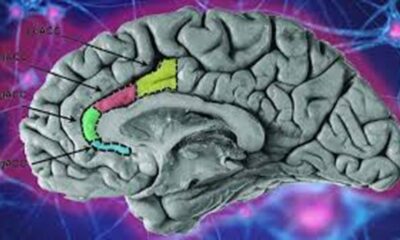It is best to exercise for 35 to 45 minutes three or four times a week.
According to recent study, moderate aerobic exercise can both prevent and alleviate postpartum depression.
This week’s meta-analysis, which looked at data from 26 research involving over 2,800 participants, revealed that aerobic exercise is a useful preventive and therapeutic measure for postpartum depression.
In particular, it was best to engage in three to four moderately intense exercise sessions per week, lasting between 35 and 45 minutes, both before and after pregnancy.
Exercise is beneficial whether done alone or in a group, the research indicates.
The recommended amount of exercise can be incorporated into many lives in a number of ways, such as stroller walking, water aerobics classes, jogging or walking combined with stretching, and even dancing.
Postpartum depression symptoms affect about 1 in 8 women who have recently given birth to a living child, according to the research.
Untreated postpartum depression frequently goes undiagnosed. Research shows that 50% of women who are diagnosed with depression but do not receive therapy, and nearly 60% of women who experience depressive symptoms do not receive a clinical diagnosis.
This illness has a major influence on public health since it affects mothers’ physical and mental well-being as well as the health of their offspring. In light of this, knowing practical methods for treating and preventing postpartum depression is crucial.
According to research, signs of postpartum depression include distancing yourself from loved ones, sobbing more than normal, experiencing worry or excessive anxiety, feeling angry, doubting your capacity to care for your child, and having thoughts of hurting yourself or your child. The symptoms are more severe and persistent than the “baby blues” that some women may have after giving birth, and they could linger for weeks or months.
It is been pointed out that there are several benefits to mental health, hormones, and sleep that may be obtained from modest exercise. It can improve mood, trigger the production of endorphins, reduce anxiety and depressive symptoms, balance hormones, and enhance the quality of sleep.
“We’ve known for a long time that exercise is good during pregnancy,” Ashton, a board-certified OBGYN, said Thursday on “Good Morning America.” “It’s good for the body, and it’s also good for the mind and mood.”
Women who are interested in using exercise as a solution for depressive symptoms they are experiencing during or after pregnancy should consult with their healthcare professional.
There is no one test that can identify postpartum depression or determine whether a woman will experience it, despite the fact that a history of depression may raise the risk. If a woman feels unwell after giving birth, she, her spouse, or other family members are frequently the ones to seek professional medical attention.

 Diabetology1 week ago
Diabetology1 week ago
 Diabetology5 days ago
Diabetology5 days ago
 Diabetology1 week ago
Diabetology1 week ago
 Diabetology1 week ago
Diabetology1 week ago
 Diabetology1 week ago
Diabetology1 week ago
 Diabetology5 days ago
Diabetology5 days ago
 Diabetology3 days ago
Diabetology3 days ago
 Diabetology3 days ago
Diabetology3 days ago


















